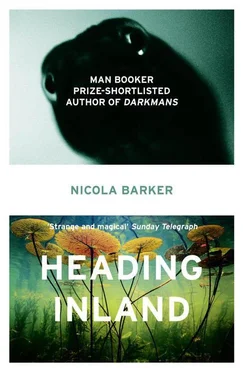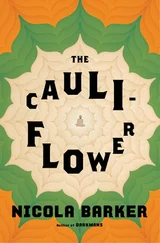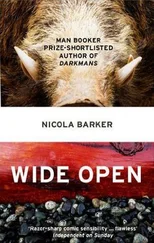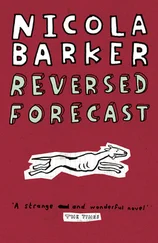Anyhow, Saturday morning, Josh phones me. He tells me Sam’s dead. They found his body in his flat. He’d been dead for almost three weeks. He’d had a brain clot or something, a massive haemorrhage. And sure, I was cut up about it, but at the same time I was happy because I knew, in my gut, that Sam hadn’t been angry with me about the penalty after all, not really. We hadn’t fallen out in the end. He bore me no grudge.
Afterwards, though, when I went to his flat with Josh to help sort through some of his stuff, I couldn’t help imagining how the phone must have rung that time I’d wanted to speak to him, and Sam, sitting close by, on the sofa, dead, the TV still on, the phone ringing.
Actually before I run out of space. .
Parker had drawn an arrow and had continued this answer on to an extra piece of paper.
‘Tea or coffee?’ Bethan asked, strolling into the room.
Parker looked up. ‘Tea, white, two sugars. Thanks.’
When Bethan returned with his tea, she placed the cup on the desk to his right. She had small hands, he noticed, and on her wrist was a little charm bracelet. The ornaments hanging on it were all connected with animals — fish, mainly, but a ladybird and a robin, too.
Parker thanked her for the tea, watched the curve of her hip pushing against the black fabric that contained it as she walked from the room, picked up his pen, smiled to himself and then started writing.
I must just get to the point. I was helping to sort through some of Sam’s things. Me and Josh and Sam’s mother. We were all cleaning and packing and clearing out his flat. This was Sunday. I was in the kitchen, mainly, and the first thing I came across was a bag of shopping which had been dumped, on the floor, next to the fridge, still not unpacked. Stuff Sam had bought at Spitalfields market the day after our last match together. The day he died. Some sourdough bread, mouldy now, some beetroots, raw, a lettuce — slimed up — and a box of free-range duck eggs. White eggs, like hens’ only bigger.
I was about to throw the eggs into the bin with the other food but then Josh came through and said, don’t chuck them, take them home if they’re still fresh. And they were. So I did. Imagine that. A dead man’s eggs.
I took them home and I was unpacking them from their box and into my refrigerator. For the most part they came easily, but then one of them had cracked and the juice that had escaped had dried like adhesive and stuck part of the shell to the box. I yanked it up but when it pulled free the egg was heavier than the others had been and felt odd in my hand. I looked at it, closer. I held it on my open palm and it was shaking. That little egg. Jerking and warm on my palm.
I sat down and I watched it. For two, three hours. And slowly, very gradually, it hatched.
Bethan turned over the sheet, ready to find something on the other side but the other side was blank. She had become quite engrossed. What an odd man, she thought, and stared fixedly at the sheets before her while using her free hand to fiddle, unconsciously, with the little charm bracelet on her wrist.
She tried to work out what the answer Parker Swells had given her meant. What did it say about him? His friend had died. He was sensitive — worried about the possibility of having injured or offended him — but how did that relate to a work context? Could it relate?
She bit her lip. Parker’s reaction to Sam’s death had been curious, kind of dispassionate. But he went along to clean his flat, to help out, so he was handy. Good in an emergency? And then finally. . the eggs. That was strange.
Bethan reread the additional material Parker had added on the second page about the duck hatching. This was the part of his story she found most interesting. Again, she messed with the bracelet on her wrist, looked down at it for a moment: fish, fish, robin, shark, fish.
Sometimes Bethan felt she had to be like a private detective in her line of business. To discover things, to unearth people’s secrets, to pluck at threads and see what she could unravel. To read significant signs and signals into the apparently superficial.
Parker Swells had confused her. She felt all fogged up. She inspected his writing again, the slope, the mis-links, the way he didn’t close his a s and his o s. She delved into her bag and took out her college notes. She checked back on a couple of references. There were signs here, definite signs. Below the line, sloping left, the o s. . He was a liar.
Parker didn’t get his third interview. The letter they sent him — the people from personnel — said very little, only that they’d had plenty of applicants and they hoped he’d find success elsewhere.
By a strange coincidence, a week to the day after Bethan had dispatched her rejection letter to Parker Swells, she met him on the platform at Canary Wharf, waiting for a train. It was five thirty. She was on her way home to Bow. As she walked past him he said hello.
‘Hello,’ she said, and looked at him askance.
‘Sorry, you probably don’t remember me.’
‘I remember you.’ She smiled. ‘The duck.’
He chuckled at this but added nothing. ‘I was here,’ he said, by way of explanation, ‘on another interview. With another bank.’
‘Oh yes?’
‘Yes.’
He was handsome, she thought, in his own way. He had gappy teeth and green eyes and skin which had seen the sun. Leathery. But he was a liar.
The train arrived. The doors opened. Parker was actually in front of Bethan, but he stepped back and held out his arm. ‘After you.’
She thanked him and moved forward and then she saw it. His right hand, completely mangled. He caught her expression. ‘An accident,’ he said, ‘at work.’
She nodded. They climbed on to the train. ‘It’s ugly,’ he said, with apparent unselfconsciousness.
‘Were you left-handed originally?’ Bethan asked, shocked and momentarily stuck for something to say.
‘No. Right-handed, always. I had to learn to use my left hand. To write, to eat and everything. After the accident I found I couldn’t work so effectively in a manual capacity. That’s why I decided to go to college. To qualify for something else.’
Bethan nodded. ‘I get it.’
She felt guilty. She was normally so perceptive. That was what she was trained for and paid for, after all. That was her job. To notice things. But she hadn’t noticed this. It was down to her, finally, that Parker hadn’t got the third interview. Down to her, reading too much into things. But was that it? Maybe the problem had actually been a lack of information.
He should have told her about his hand. This was the kind of detail the company needed to be acquainted with. Doubtless, she told herself, stroking and smoothing her own ruffled feathers, too little information and not too much had been her stumbling block.
‘Are you still working as a builder?’ Bethan asked, eventually, praying for the affirmative.
‘When I can.’
‘What kind of things do you do?’
‘Laying patios, retiling, making paths, that sort of work. And building ponds.’
Bethan blinked. ‘I’ve got some ponds,’ she said, ‘a big one and a little one. Two ponds.’
‘I know. You keep fish.’
Bethan was beguiled. ‘How could you know that?’
He pointed to her wrist. ‘Your bangle. Full of fish charms.’
She chuckled. ‘I gave myself away.’
‘Not at all. I’m simply interested,’ he said, ‘in details.’
‘Me too. Actually. .’ She looked out of the window to check where they were. Three stops still to go. ‘Actually,’ she said, fiddling with her bracelet, ‘I wish I’d known about your bad hand. That might’ve affected the conclusions we reached on your second interview.’
Читать дальше
Конец ознакомительного отрывка
Купить книгу












